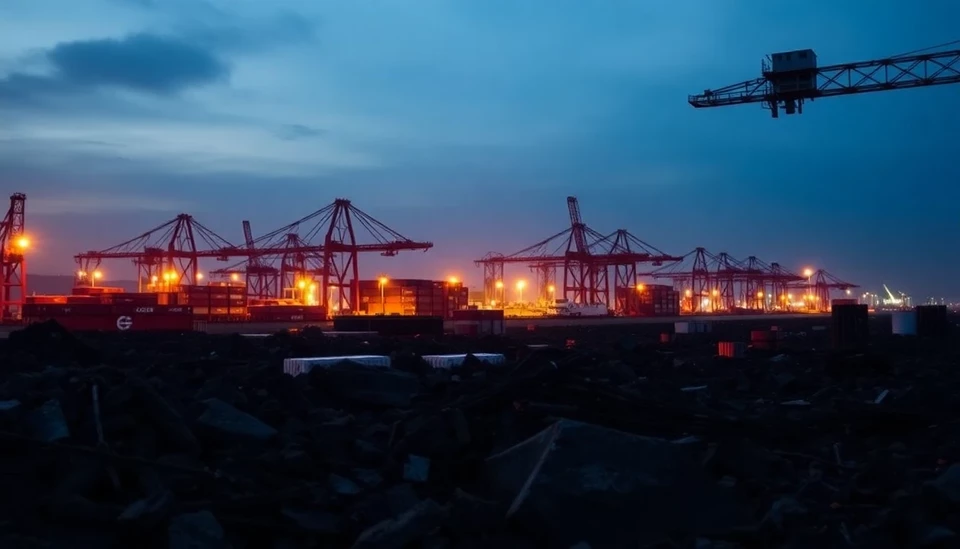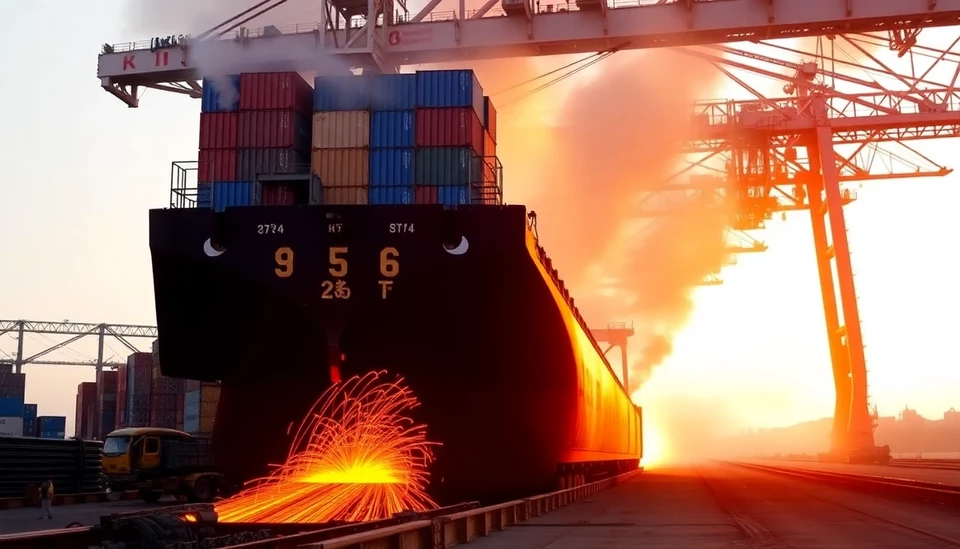
In a remarkable surge, China has reported a significant increase in its steel exports, reaching figures not seen since 2016. This recent upswing, driven by a mix of domestic production capabilities and international demand, has stirred conversations among nations regarding trade practices and market stability.
Data released indicated that China exported 9.39 million tons of steel in September alone, marking a 36% increase from the same month last year. Observers note that this surge comes at a critical juncture when many countries are grappling with their economic recovery post-pandemic. As steel is a crucial component in construction and infrastructure development, the implications of China's export levels could resonate across various global markets.
The Chinese government has defended this escalation, attributing it to its robust production infrastructure and the strategic efforts to bolster domestic industries. Officials assert that the increases are a natural outcome of market forces, rather than a deliberate attempt to undermine foreign industries. A spokesperson noted, "China's steel exports are responding to global demand while ensuring compliance with all trade regulations." The statement emphasizes the need for a collaborative global approach in dealing with supply chain dynamics.
While China positioned itself as a reliable supplier, some analysts and critics see this surge as a potential threat to other steel producers worldwide. The European Union, for instance, has shown growing concern over the competitive edge held by Chinese exports. Heightened exports could lead to pressure on local markets, potentially pushing prices down and affecting domestic steel manufacturers in countries like the U.S. and those in Europe.
In response to these concerns, several global stakeholders are calling for renewed dialogues on trade policies and tariffs, particularly as nations strive to protect their local industries while nurturing international relations. The steel sector has historically been a contentious point in trade discussions, underlined by the tension between protectionism and free-market principles.
The implications of China's steel export boom extend beyond trade balances; they touch on geopolitical relationships and economic strategies. As industries across the globe adapt to an increasingly interconnected world, the decisions made in steel production and exports could reverberate through economies and influence policies far and wide.
As China continues to navigate the complexities of the global steel market, its actions will be closely monitored by industry leaders and policy-makers eager to understand the broader economic impacts. The coming months will likely see nations analyze their positions in this evolving landscape, weighing the benefits of imports against the need for robust domestic production.
In conclusion, China's steel export resurgence not only positions the nation as a formidable player on the global stage but also raises critical questions regarding trade practices, economic resilience, and the intertwining fate of industries worldwide.
#ChinaSteelExports #SteelIndustry #GlobalTrade #EconomicImpact #Manufacturing #TradePolicy #SupplyChainDynamics #Geopolitics
Author: Daniel Foster
